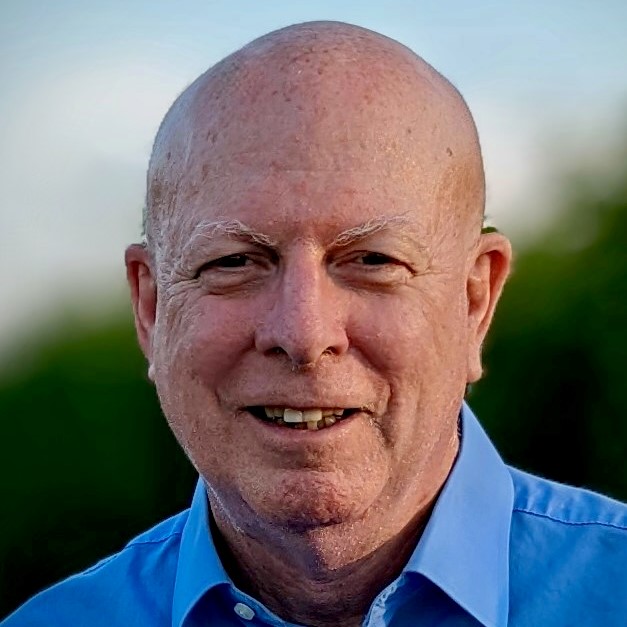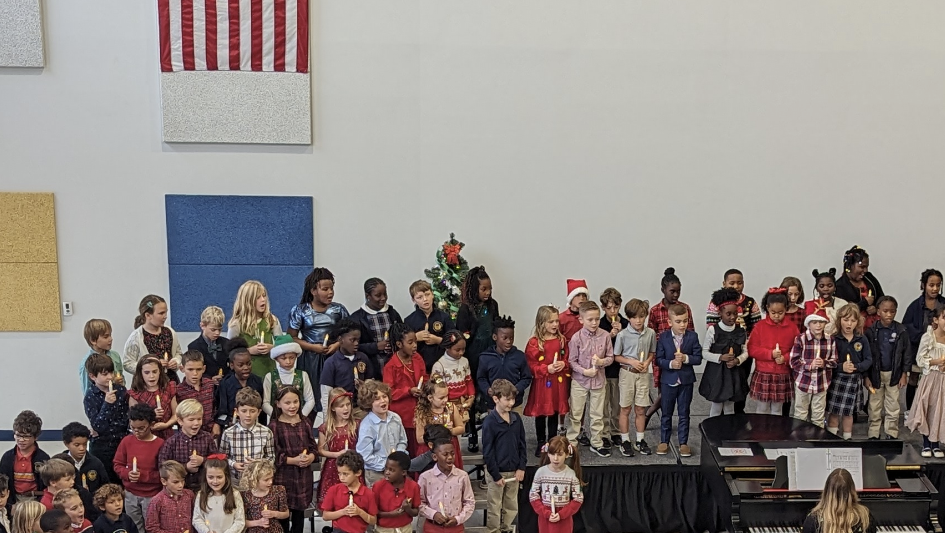
Starting a school from scratch is incredibly difficult.
Starting a school that includes a large number of students from difficult backgrounds is even more challenging.
It’s these realities that have caused the Jacksonville Classical Academy charter school to pivot in its approach in the three years since founder John Rood opened it with big plans.
In two visits, three years apart, I’ve seen the school’s same commitment to classical education with a few important changes: New management, a big turnover in teachers and a second campus in Arlington.
Jacksonville Classical Academy began under an affiliation with the Hillsdale College network. Hillsdale, a small liberal arts college in Michigan, had gained national attention for not accepting federal government funds. Jax Classical Academy founder John Rood had been impressed with other Hillsdale-affiliated classical schools he had visited.
Hillsdale has since become increasingly controversial due to its conservative ideology (and for its influence on public education in Florida). In my view, however, “traditional” need not be synonymous with “reactionary.” Rood pointed out a photo of Malcolm X in one of the classrooms that contained this quote: “Education is the passport to the future, for tomorrow belongs to those who prepare for it today.”
Today, Jacksonville Classical Academy is no longer part of the Hillsdale network, not for ideological reasons, but more for management ones. When Rood asked parents why they were pulling students out of the school, he realized the school’s culture needed a change.
[Editor’s note: After this column’s publication, Hillsdale College sent Jacksonville Today a response, which read, in part, “Hillsdale College does not manage schools, and therefore the end of the relationship between Hillsdale and JCA wasn’t, as the article claims, because of a management issue. Rather, Hillsdale’s K-12 Office had a difference of opinion with JCA regarding the role of the school’s
board. When it became clear that the board of Jacksonville Classical Academy sought to govern in a
way that departed from our recommended best practices, Hillsdale concluded that the school
should no longer be a Member School. We offered JCA a curriculum license, which would allow
the school to continue to make use of the Hillsdale K-12 curriculum at no charge, but the JCA
board chose not to sign it. The parting of ways was friendly and mutual.”]
On my latest tour, just before the recent holiday break, I saw students reading from real books, not computers or tablets.
Executive Director Lindsay Hoyt explained in an email, “We aren’t anti-technology but we want it to be used effectively for our students.” She says a weekly technology class teaches basic computer skills like typing, and teachers use projectors and docu-cameras.
I also observed a class reciting the preamble to the U.S. Constitution by heart. Hoyt confirms that memorizing texts in whole or sections is part of the school’s culture.
And an eighth-grade class was reading Animal Farm, with the teacher leading the students in a deep discussion of the book as a satirical allegory for Stalinist Communism and capitalism. That class will also read four other classics this year: Shakespeare’s Much Ado About Nothing, To Kill A Mockingbird, Lord of the Flies and Robinson Crusoe, as well as poetry.
A charter school like Jacksonville Classical Academy has more flexibility than a traditional school but it’s still a public school and takes students from its Mixon Town neighborhood or through a lottery.
The initial plan at Jacksonville Classical Academy was to accept students for all the grade levels in order to fill the school as quickly as possible, Rood said. A few students could barely write their names.
Now he’s learned the ideal way to develop a school is to start small and young – and then to keep those students. High turnover, a difficulty for many core city schools, prevents students from benefiting from outstanding education. Also, many core city elementary schools have small enrollments, which means they have less revenue for extras.
The main campus of Jacksonville Classical Academy on Forest Street in Mixon Town near Brooklyn has about 750 students in kindergarten through ninth-grade and an eventual capacity of 1,200 students from pre-K to 12. The new East campus in Arlington started this school year with about 200 students from kindergarten through fifth-grade. It eventually will reach a capacity of 800 students from pre-K through eighth. Those Fort Caroline students can attend high school at the main campus.
Observing schools is nothing new for me. As reader advocate at The Florida Times-Union for 15 years, part of my job was to reach out to the community. I estimate that I visited about 85 schools during those years, mostly traditional Duval County public schools, and some in St. Johns and Clay counties, along with a few charter schools.I also served as the first chairman of the School Advisory Council at Darnell-Cookman when it transitioned to a college prep magnet and on the School Advisory Council at West Jacksonville Elementary School as a representative of the T-U, a school partner.
During those visits, I learned first impressions are usually accurate. An entire school can’t change its culture at a moment’s notice. Do students look engaged and happy to be there? Do teachers appear to be stressed out, wrangling students to behave rather than leading them in education? Is the principal mostly hiding in the office or spending time in hallways and classrooms mentoring teachers? When a visitor shows up, are the staff eager to show off the school?
A great school requires five ingredients working in sync:
- A strong curriculum and a strong school culture. Constant experimentation, especially in the younger grades, can be disruptive. For instance, Jacksonville Classical Academy emphasizes seven virtues of Courage, Courtesy, Honesty, Perseverance, Self-government, Service and Responsibility.
- Engaged and skilled teachers. A teacher must know the subject matter but also must possess the skills to control a classroom. Classes have different personalities, and some are more challenging than others. Students can tell when a teacher cares for them, and there is a clear difference between being strict and being cruel. Jacksonville Classical Academy had a turnover of about 50 teachers over the previous year. A large turnover of teachers is commonplace for a school making a major change, like a neighborhood school becoming a magnet. Or a big staff turnover may be a sign of a dysfunctional administration. But that kind of turnover is not expected for the coming year, Hoyt says.
- Parental participation. I would never allow my children to attend a school where I was not welcome as a parent, or where the students do not appear engaged. Getting parents to participate is easy when most of the parents come from two-parent families, with parents eager to volunteer at the school and pay for extras that aren’t included in the school budget. For single-parent families struggling to get by, it may require creativity to attract parents to school. Spaghetti night at West Jacksonville was a big winner. Putting students on stage is another way to attract parents, as was the case during Jacksonville Classical Academy’s recent holiday festivities.
- Community involvement. The school must integrate the community into its activities. Rood opened the school with the expectation that it would attract children from workers in the Downtown and Brooklyn areas. That has happened.
- School operations must run so well that they’re invisible. That includes budgeting, maintenance, facilities and personnel. One reason that nonprofits like charter schools fail is financial mismanagement. At Jacksonville Classical Academy, there is one person responsible for all the non-teaching activities while another guides the teachers. Hoyt oversees all of it.
It takes a great leader to pull all of these interests into one smoothly functioning school. Sometimes there is just a bad fit. I have seen a principal who excelled at an elementary school but failed at a middle school, then returned to an elementary school where he excelled again.
If any one of these factors slip, the school will never reach greatness, which in Florida is recognized as an A grade. Jacksonville Classical Academy most recently earned a C from the state. It is unlikely to improve much until the students lagging behind grade level graduate, Rood says.
It seems a role model for Jacksonville Classical Academy was Cornerstone Classical Academy on St. Johns Bluff Road, which opened in 2020 with 442 students from kindergarten through sixth-grade and is adding one grade every year until the 12th grade.
Cornerstone offers a classical education model but never had an attachment to Hillsdale. It has an A grade from the state. That is where Hoyt comes in. Rood hired her from Cornerstone.
“Her school is on autopilot and doing real well and I had a school that had a rocky year last year,” Rood said. “As great as the previous principal was, we needed to create an environment where there is joy in school, not just academics and virtue. Lindsay came in and brought joy and enthusiasm and love to the school. We still haven’t missed a beat from the academic standpoint. Our kids are growing and doing well.”
The main Jax Classical campus will have a gym in 2025. Once nearby McCoys Creek renovations are complete, a soccer field will be added.
One measure of a charter school’s popularity is its wait list. Charter schools, as public schools, use lotteries to fill their seats. A popular charter school like KIPP can have over 1,000 students on a wait list. At the main campus of Jacksonville Classical Academy, where no more students are being accepted for the current school year, the wait list is at 164. Applications for the next school year, preschool through 10th-grade, began on Feb. 1.
The school does not offer transportation. Students are car-pooled or driven by their parents, many of whom work near Downtown.
Would I send my children or grandchildren to Jacksonville Classical Academy? Answer: It depends on the child. I might have sent my youngest, an Assumption and Bishop Kenney grad, because the structure has elements of Catholic school education. The fact that a child can go there for pre-K through 12th grade is an attraction. My eldest daughter benefited from the aggressive and supportive academic atmosphere at Stanton.
No matter where you end up choosing for your children, I recommend first paying the school a midday visit to see how it feels in action.
Lead photo: Children perform at Jacksonville Classical Academy’s 2023 winter holiday program | Mike Clark

Mike Clark devoted about 47 years to Jacksonville's two daily newspapers. He retired in 2020 after 15 years as editorial page editor at The Florida Times-Union, where he and his staff won local, state, regional and national journalism awards.
He is the author of the new book, “Civil War Survivor: Incredible True Story of a Union Private.”





